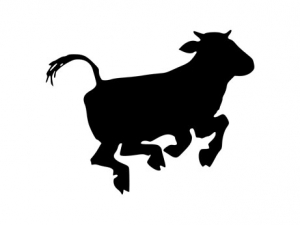Organic farming has long been considered more environmentally friendly than intensive, conventional farming, but a study led by scientists at the University of Cambridge, UK suggests perhaps not, provided more natural habitat can be “spared the plough”. Nature Sustainability reported that the study had researchers working with 17 organisations in the UK and worldwide, including people in Poland, Brazil, Australia, Mexico and Colombia. They analysed data from 100s of studies of four large food sectors – Asian paddy rice, European wheat, Latin American beef and European dairy.
Here's a pitch that will have the greenies seeing red. Intensive, high-yielding farming may be the best way to meet rising demand for food while conserving biodiversity, a new study has found.
Popular Reads
Fonterra confirms timeline for Lactalis deal and $2-per-share capital return
The sale of Fonterra’s global consumer and related businesses is expected to be completed within two months.Canterbury arable farmers face heavy losses after stormy January wreaks havoc
Canterbury arable farmers are down by tens of millions of dollars after a rollercoaster of wild changeable January weather saw harvests…Northland Field Days promise unforgettable 40th anniversary Celebration
A 40th Anniversary event to remember.Formula goes sour
OPINION: Media reports say global recalls tied to cereulide toxin contamination in milk-based nutrition brands could inflict combined financial losses…Featured
AgriSea NZ Appoints Craig Hudson as Chief Growth Officer to Drive Global Expansion
Agrisea NZ has appointed Craig Hudson as it's new chief growth officer.
State Farmer Delivers Solid Half-Year Result
State farmer Landcorp, trading as Pamu, is a forecasting a full-year net profit of around $100 million.
Ruralco CEO Wins Excellence in Business Leadership at ANZ Business of the Year Awards
Tony Aitken, chief executive of Ruralco, has been awarded the Excellence in Business Leadership Award at the ANZ Business of the Year Awards.
Global Trade Uncertainty 'Likely To Remain'
Global trade has been thrown into another bout of uncertainty following the overnight ruling by US Supreme Court, striking down President Donald Trump's decision to impose additional tariffs on trading partners.
Queensland Fruit Fly Movement Controls Lifted in Mt Roskill
Controls on the movement of fruit and vegetables in the Auckland suburb of Mt Roskill have been lifted.
Another Windfall for Fonterra Farmers, Unit Holders
Fonterra farmer shareholders and unit holders are in line for another payment in April.









